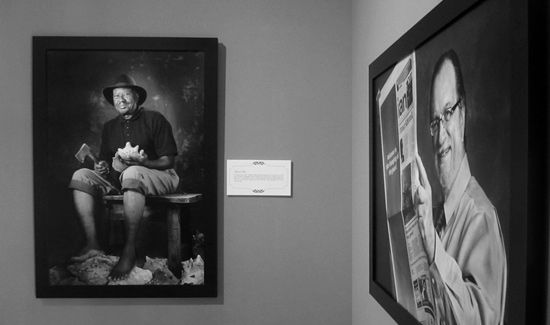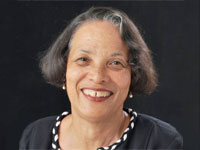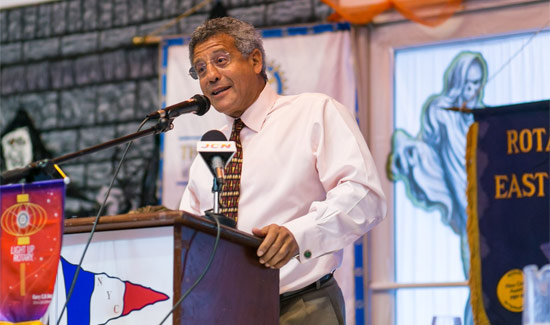
The struggle for majority rule was a march for freedom and social justice. The second emancipation ushered in a new era of racial equality and greater opportunity for the majority.
The empowerment of the black majority comprised political, economic and social advances. Yet, much of the spirit and many of the promises of January 10, 1967, were corrupted or ignored as the party of majority rule coalesced into a cult of personality and a leadership so avaricious, so hungry for power, that it betrayed core ideals and values of the movement.
Various freedoms were stifled as the PLP entrenched a political culture of intimidation. The instruments of the state were directed to intimidate scores of Bahamians, freeze out opposing voices in the broadcast media, deport the spouses of opposition supporters, economically destroy opponents, corrupt electoral processes, and marshal a host of other practices antithetical to democracy.
August 19, 1992, represented not only a break with this past and a new direction for The Bahamas. It also represented an opportunity to renew much of the spirit and many of the promises unfulfilled after 25 years of rule by Sir Lynden Pindling’s PLP. The election of the Free National Movement in August of 1992 was a new birth of freedom for Bahamian democracy.
Rainbow
The call signs and numbers on the radio dials across the country represent a rainbow of opinions and ideas unfettered by government control. The freedom of speech Bahamians now enjoy over the airwaves is not simply an important moment in our democratic evolution. It ranks among the most important.
The freeing of the broadcast media symbolizes a new birth of freedom because it helped to smash a culture of political intimidation, gave voice to the freedom of conscience of scores of Bahamians, and reminded new generations of Bahamians that they need never fear their own government.
Many recall one of the seminal lines of Bob Marley’s “Redemption Song”: “Emancipate yourself from mental slavery, none but ourselves can free our mind.” But these words were originally those of Marcus Garvey.
These words bore resonance as Bahamians unshackled themselves from minority rule, and also from misrule by a party which, having come to power promising freedom’s song, refused, over a quarter of a century, to allow the greatest possible freedom of expression over the airwaves. It was a betrayal of the cause of freedom resembling the practice of a dictatorship.
So, it was left to the man often derided as a dictator by various self-serving interests to lead to office an FNM which oversaw this new birth of freedom. Not only were the airwaves freed. Hubert Ingraham and the FNM ushered in a culture of greater political freedom and prised the hands of political interference off an encyclopedia of government-operated programs.
Greater transparency and accountability were no longer buzz words more often mouthed and breached than respected. If one were to rewind the business and practices of government to August 18, 1992, The Bahamas we live in today would be a more undemocratic and less free society were it not for August 19, 1992.
The soul of a people and a nation requires more than economic opportunity and national security, though both are essential. As important is effective freedom of thought and action. The founders of the FNM understood that freedom represents one of the highest ideals of a free and civilized people.
Vital
This is why making Bahamian women fully equal constitutionally is so vital. It both represents and fulfils an ideal, something that Hubert Ingraham and the FNM instinctively grasped, and fought for with courage and determination.
While the Hubert Ingraham-led FNM brought forth a referendum question that would have made Bahamian women more equal in law, the Christie-led PLP not only effectively opposed the question. Given five years to remedy a historic mistake, it failed to advance the cause of equality for women.
Moreover, the PLP is now into a second term and women, in the context of this matter, are still being treated dismissively. No mention was made of this fundamental question in either the PLP’s election platform or the recent Speech from the Throne.
It was only after reassuming office that mention has been made of revisiting the question, with the administration once again punting the question to a commission, just as it did the last time in office, with no results.
It should not be lost on Bahamian women that two economic questions, one on legalizing the numbers trade and another on oil drilling were discussed during the election, while their constitutional equality has not been so prioritized.
Which brings us back to August 19, 1992. The battles for which Hubert Ingraham and the FNM fought in the cause of freedom, and to redirect the country from state domination in various areas of national life, helped to rank the country higher on various indices of freedom by international organizations.
All of which makes a comment by FNM Leader Dr. Hubert Minnis, baffling. Whether intentionally or not his answer to a question on victimization was ineffable, as he essentially suggested a near moral equivalence between the PLP and the FNM.
From promoting women’s equality to freeing the broadcast media to a Freedom of Information Act to the live broadcast of parliamentary debates, and a litany of progress, the meaning of August 19, 1992 is clear. It was a new birth of freedom which has made The Bahamas a more democratic, more liberal, more progressive and open society for PLPs, FNMs and all Bahamians.
Even as the FNM celebrates its accomplishments and those of generations of its supporters, the nation should also be grateful. Without the FNM and Hubert Ingraham our democracy would have been less secure, and our country less free.
By: Simon
Author of the Front Porch column in The Nassau Guardian



